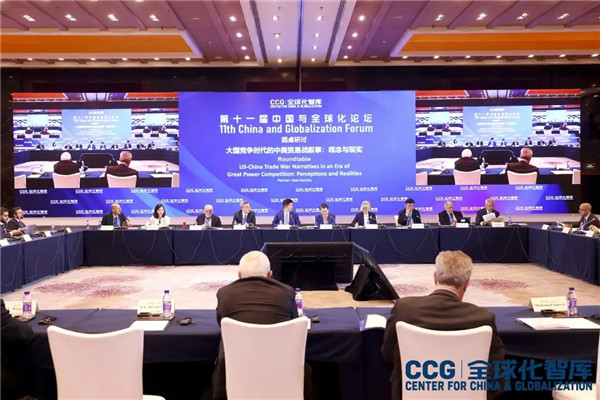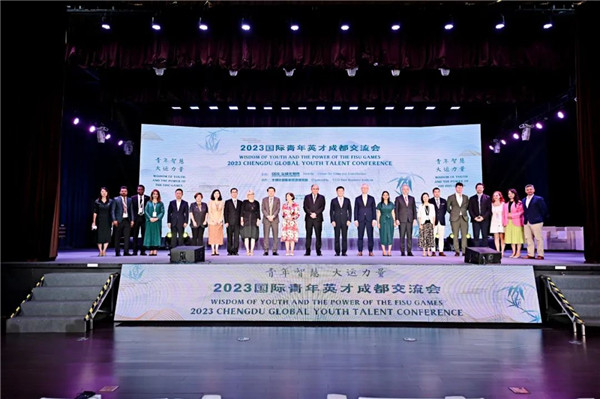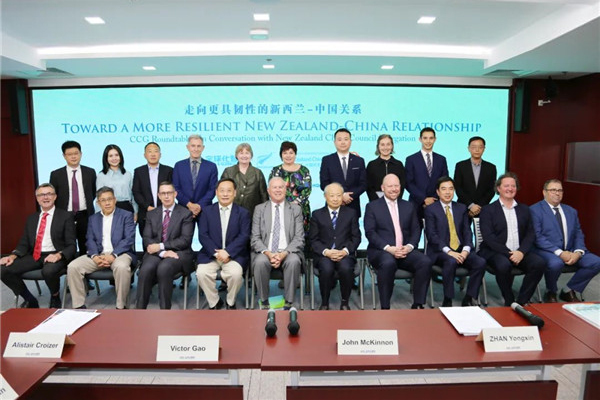CCG hosts webinar on China-Africa cooperation amid the pandemic
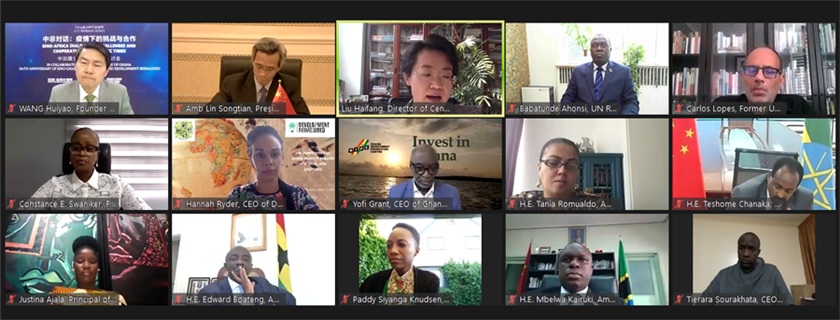
On August 11, 2020, the Center for China and Globalization (CCG), the Embassy of Ghana, and Development Reimagined co-hosted a webinar titled “Sino-Africa Dialogue on Challenges and Cooperation Opportunities amidst the Pandemic.” Ambassadors to China from various African states, representatives of the African Union to China, and officials from the African Chamber of Commerce and other related organizations participated in the webinar to discuss various topics, including the economic and commercial impact of the pandemic on African countries, how China and Africa can work together to enhance cooperation, how the African Continental Free Trade Area (AfCFTA) can create new opportunities for Sino-African trade, and how African countries can tap opportunities linked to the Belt and Road Initiative (BRI) in the post-pandemic era.
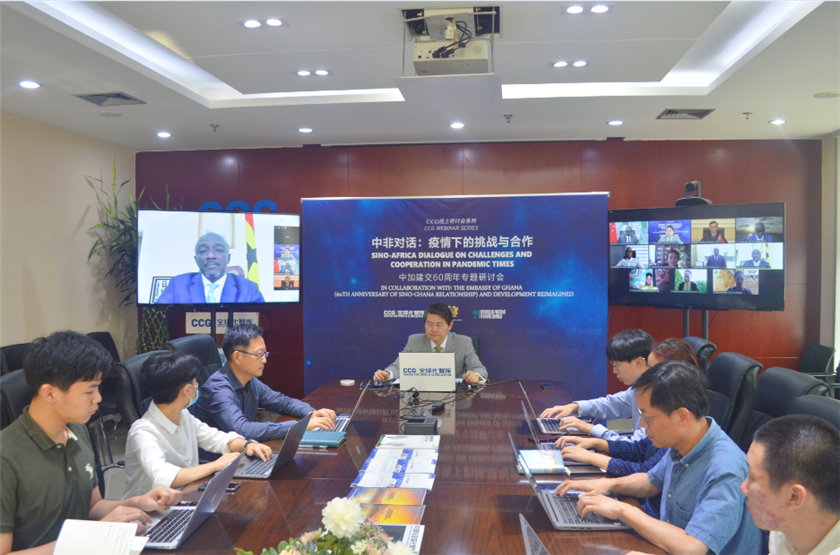
Speakers agreed that the pandemic is an unprecedented global crisis and has a huge impact on world economic and social development, especially tourism, trade, and investment in Africa. There was a general consensus that China and Africa should cooperate closely under the framework of the BRI and the China-Africa Cooperation Forum, and that both sides should fully tap the potential for mutually beneficial cooperation in the areas of infrastructure construction, human resource development, financial support, and market opening. African representatives generally expect China to increase imports of African goods, expand bilateral market access, and support the economic recovery of African countries.
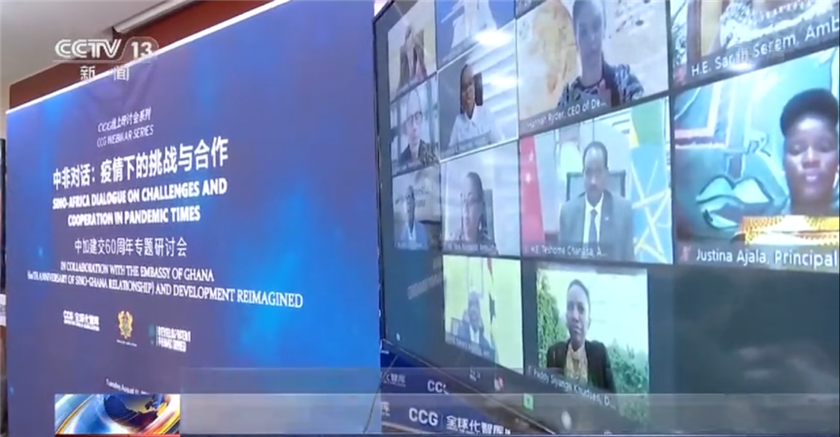
2020 marks the 60th anniversary of the establishment of diplomatic relations between China and Ghana. Edward Boateng, Ghana’s ambassador to China, said in his opening speech that the webinar would focus on Africa-China relations in the post-pandemic era, a very important topic for the future. He acknowledged the establishment of diplomatic relations between Ghana and China 60 years ago and the goodwill of the two former leaders of these two countries, President Kwame Nkrumah and Chairman Mao Zedong. He said that many difficulties Ghana and other African countries face today are the same as 60 years ago, such as economic and geopolitical challenges. Thus, he said, this dialogue is especially important for African ambassadors and other figures.
CCG President Wang Huiyao and Hannah Ryder, CEO of Development Reimagined, hosted the webinar.
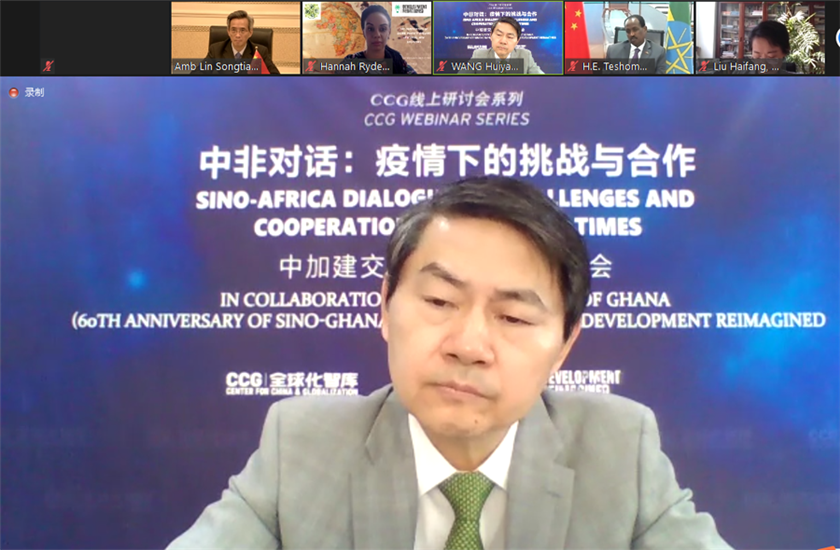
Wang pointed out that Africa is a continent full of hope and great development potential. He noted that the AfCFTA is expected to cover 1.2 billion people, and this will be a significant boost to Africa’s development. He further explained that the AfCFTA connects African countries in terms of economy, trade, and investment, making Africa a very large market, with 50 countries open to free trade. He voiced hopes that China and Africa will deepen economic and trade cooperation by pushing forward the free trade agenda. He said that the potential and opportunities for China-Africa cooperation are huge.
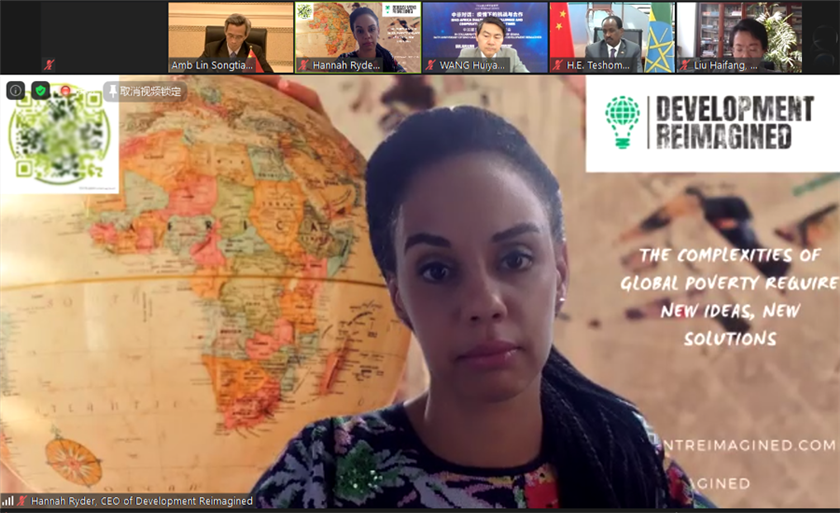
Ryder introduced Development Reimagined, a development consulting company headquartered in Beijing. She added that the company’s goal is to reduce poverty and stabilize development, focusing on projects related to Chinese and African companies. She said that since the outbreak of the COVID-19 pandemic, Development Reimagined has been committed to sharing information about the situation of the pandemic in Africa, calling for consensus between China and Africa, and seeking solutions to the problem.
Keynote speeches were given by Lin Songtian, president of the Chinese People’s Association for Friendship with Foreign Countries and former Chinese ambassador to South Africa, and Carlos Lopes, former undersecretary-general of the United Nations and former executive secretary of the Economic Commission for Africa.
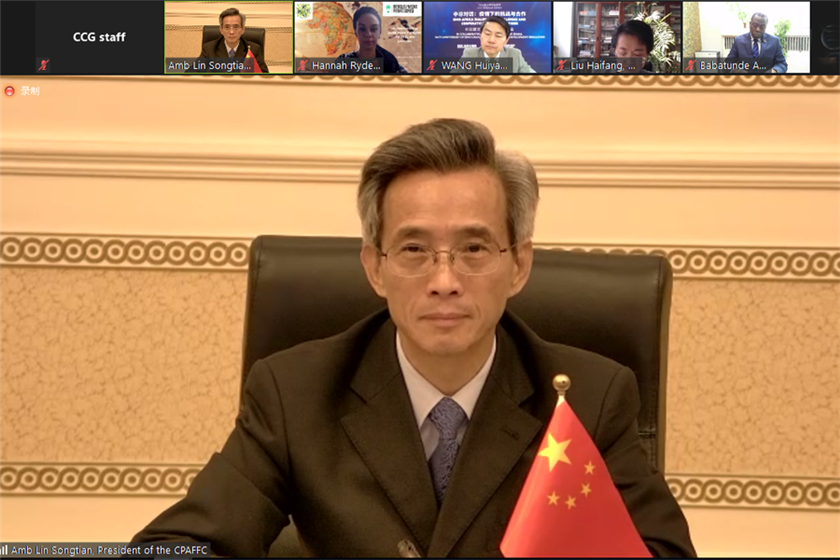
Lin said that, faced with a global pandemic, no country can survive alone. He acknowledged China’s actions to contain the spread of the virus and to protect lives and resume production, as well as China’s all-round and multi-level support to all African countries in response to the pandemic. He said that although there has been no large-scale outbreak in the African continent, the pandemic in Africa cannot be overlooked. He suggested that first, China and Africa should unite against unilateralism and defend the interests of developing countries; secondly, the current US administration should undertake responsibility and contribute to the international fight against the pandemic; thirdly, developed countries should provide financial and material support to Africa in confronting the pandemic; fourthly, the international community should pay more attention to future disease control and prevention, people’s livelihood and social development in Africa.
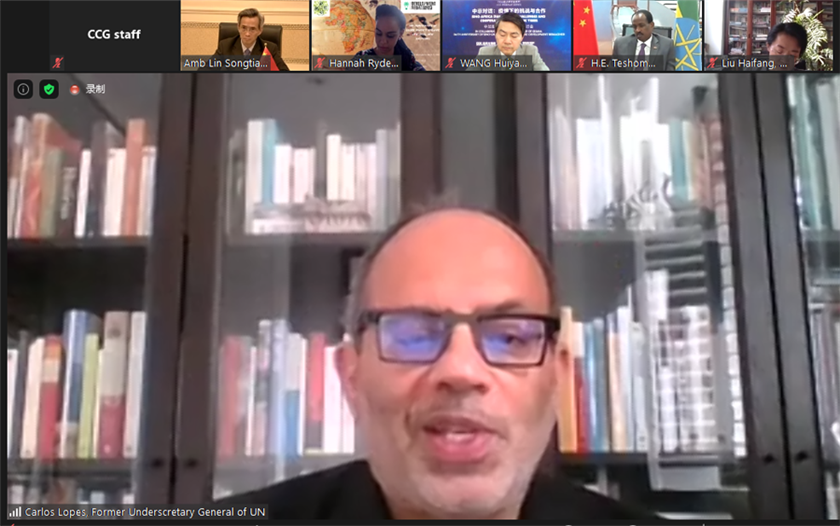
Lopes pointed out that, while the pandemic has brought challenges, it may also promote structural reforms in Africa and provide development opportunities. He offered some suggestions for Africa’s development. Firstly, Africa should accelerate the process of industrialization and shift from oil to cleaner energy sources. Africa is one of China’s largest sources of oil import, and China is the largest producer of renewable energy equipment. Thus, cooperation can benefit both sides. Secondly, African countries need to decrease their economic dependency on exporting commodities. At present, only 10% of the arable land in Africa is used for modern agricultural production, and only 6% of arable land is irrigated. Africa has huge potential for agricultural production and can strengthen cooperation with China in this field. Thirdly, Africa bears 25% of the global disease burden, but its share of global health expenditure is less than 1%. The total value of medical and health products consumed by the African continent is less than 2% of the global total. Africa needs a structural solution that can make the most out of this 1% of global health expenditure. Fourthly, Africa should accelerate scientific and technological reform and innovation. Fifthly, there is a need for global dialogue on economic governance to create a space for Africa. He emphasized that China is a suitable partner for Africa.
China-Africa Cooperation will boost recovery of African society
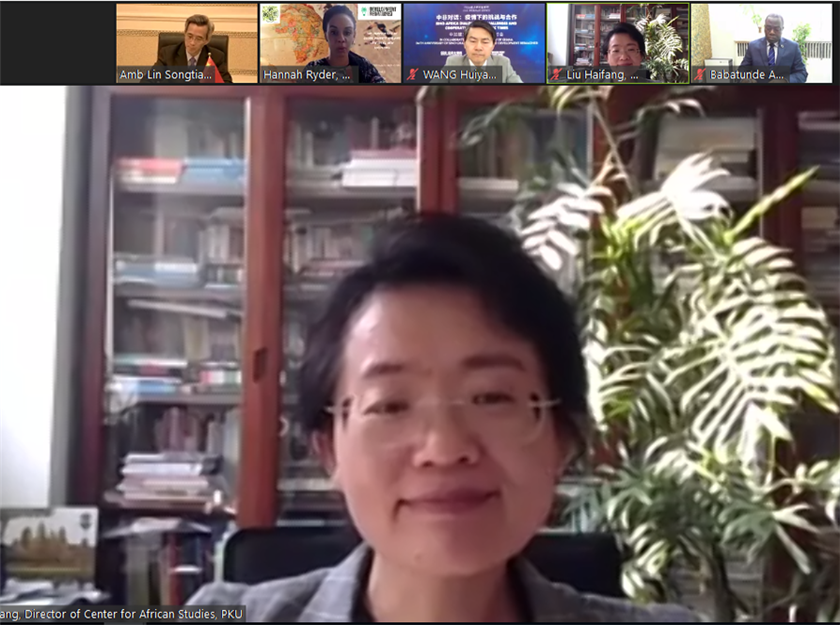
Liu Haifang, director of the Center for African Studies at Peking University, said that education is of far-reaching significance to the development of Africa. In the 1990s, China began to formulate policies to encourage African students to study in China to return to their home country to work, but at that time, there were few Chinese companies operating in Africa. For a long time, there has been a gap between education and actual economic needs. Many African graduates cannot find suitable jobs on the African continent, so they go to live in developed countries, resulting in a massive brain drain. Liu said that China presents attractive education opportunities, and over 90% of African students study in China at their own expense. She pointed out that universities with strong professionalism and internship projects will actively encourage African students to return to their home countries and align education with actual economic needs. She added that the COVID-19 pandemic has shown that small and medium-sized Chinese companies in Africa can play a big role in producing medical and protective equipment. Liu said that encouraging African students to study in China to return to Africa to work and cooperate with Chinese companies would be a target for future cooperation.
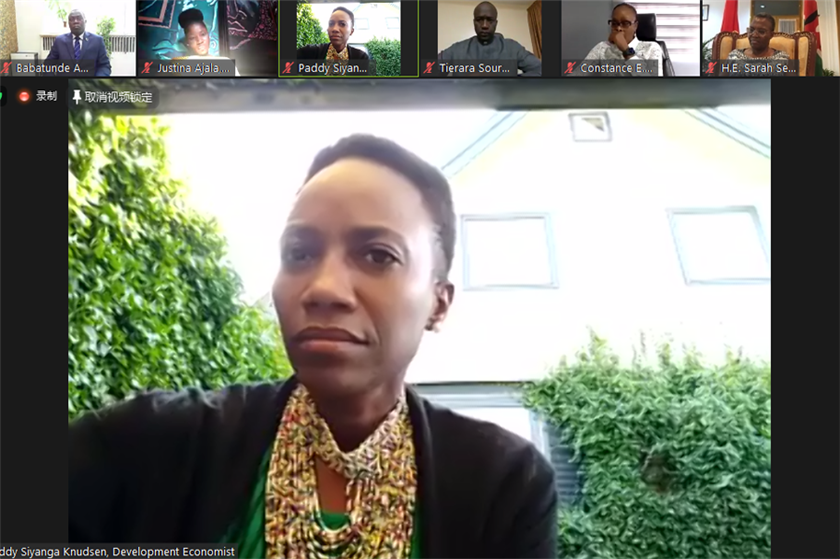
Development economist Paddy Siyanga Knudsen said that human society requires partnerships and that interaction between nations can create many exchanges. She noted that some events during the pandemic have led to unpleasant circumstances in Africa or China, calling for more dialogue at the governmental and local level. She said that the number of Chinese tourists to Africa has been increasing in recent years, and that African countries need to consider the needs of Chinese tourists and provide corresponding services. She also said that the free trade agreement between China and Africa and some facilitation policies are positive developments. Regarding the issue of illegal immigration, she said that policy reforms are needed if countries are to reach any agreement. In any case, dialogue at all levels and in many topics is extremely important, and cooperation with China can contribute to the development of Africa.
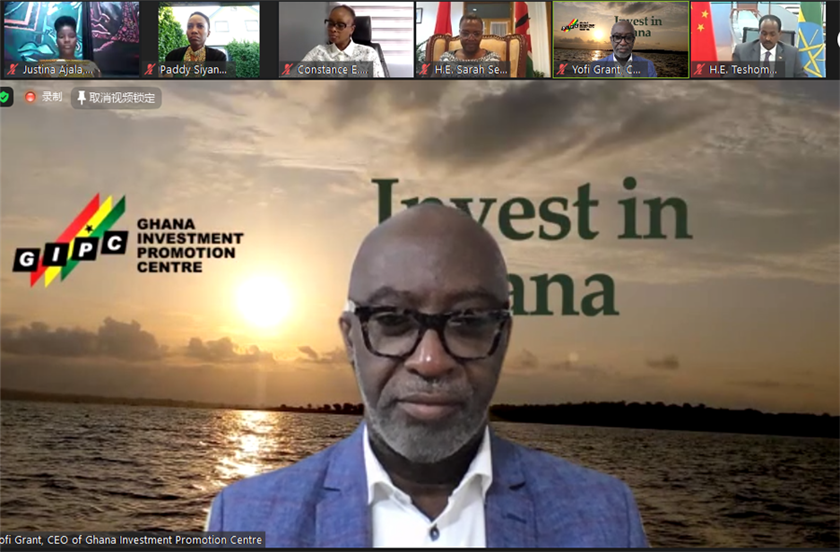
Yofi Grant, CEO of the Investment Promotion Center of Ghana, said that the pandemic tells us that no country can stand alone without international cooperation. He stressed that in the past few years, six of the ten fastest-growing economies in the world are in Africa. He added that there are still some problems that need to be overcome, such as infrastructure and technology gaps, but that Africa is ready and capable of realigning international relations. He noted that studies have shown that China’s investment in infrastructure in Africa is almost ten times that of the rest of the world over the past few hundred years. He said that the relationship between Africa and China is critical because it is a mutually beneficial partnership. He also said that the AfCFTA is an important lever for Africa to play a role in world trade.
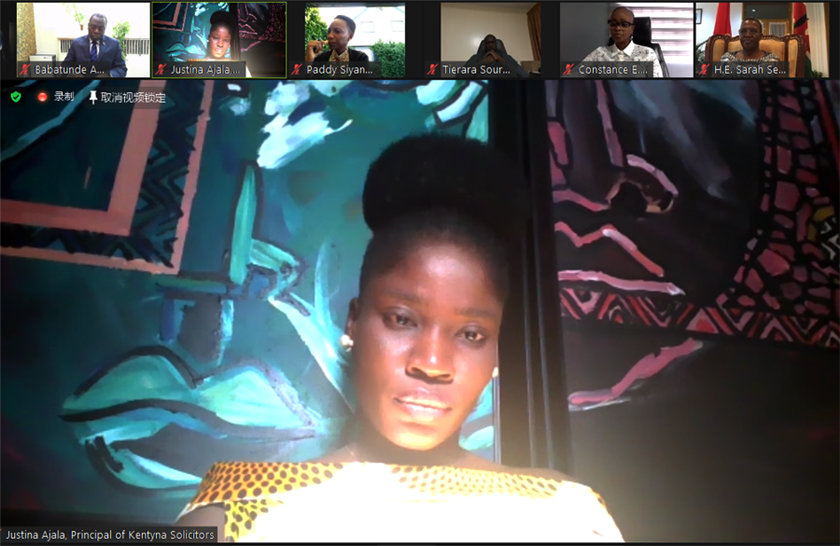
Justina Obaoye-Ajala, head of Kentyna Law Firm and Global Education ambassador of the African Youth Expatriates Organization (AYDO), said that China has many opportunities and many young Africans have immigrated to China. She said that in the past, studying in China was not a choice for many African families, but now because of scholarships, many Africans can study in China. She added that after graduation, many Africans stayed in China and found jobs in China. Obaya-Adjara said that she is a beneficiary of the scholarship and has full trust in what China is doing.
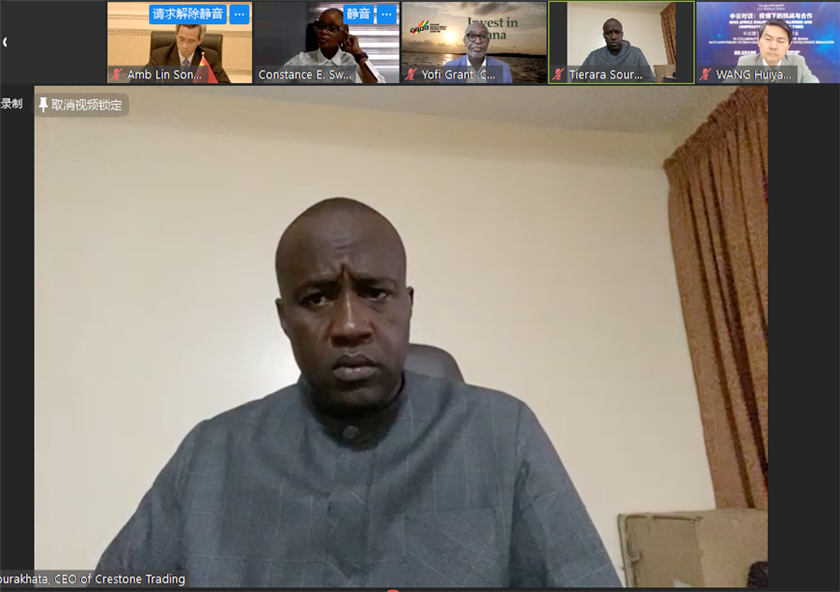
Tirera Sourakhata, president of the Yiwu African Business Association, pointed out that personnel exchanges between China and Africa are the key to in-depth exchanges and cooperation, but the pandemic has made it very difficult. He said that in addition to logistical exchanges between China and Africa, talent exchanges are an important bridge for trade between the two regions. He encouraged everyone to think deeply about the development of personnel exchanges in the post-pandemic era and said that online platforms cannot replace on-site visits and exchange.
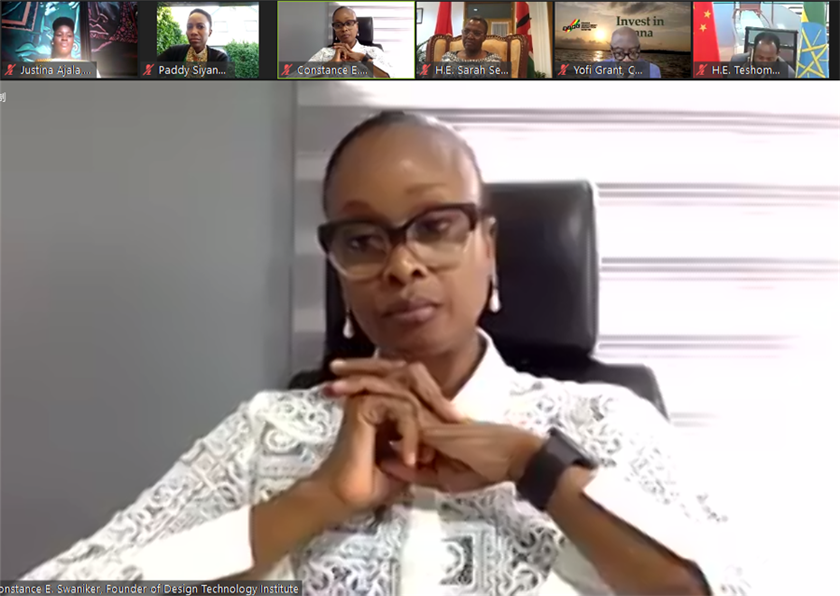
Founder of the Institute of Design and Technology Constance Swaniker highlighted the importance of technical education for the future development of Africa. She said that supply chains in Africa face major challenges from the pandemic, and that there are also structural challenges accumulated over the decades. Swaniker added that compared with many parts of the world, Africa’s technology is lagging behind, and the quality of its workers is not high enough that its huge population base cannot be converted into dividends. She pointed out that poor understanding of technical education is the crux of the problem: Africans traditionally do not want to send their children to learn technology, and there are few opportunities to enter such places to learn. Swaniker also said that China, as a large manufacturing country, should join hands with African communities to carry out technical education and improve the quality of workers, which will not only create huge profits for both parties, but also provide an environment for the long-term development of Africa.
Will the pandemic bring new opportunities for China-Africa cooperation?
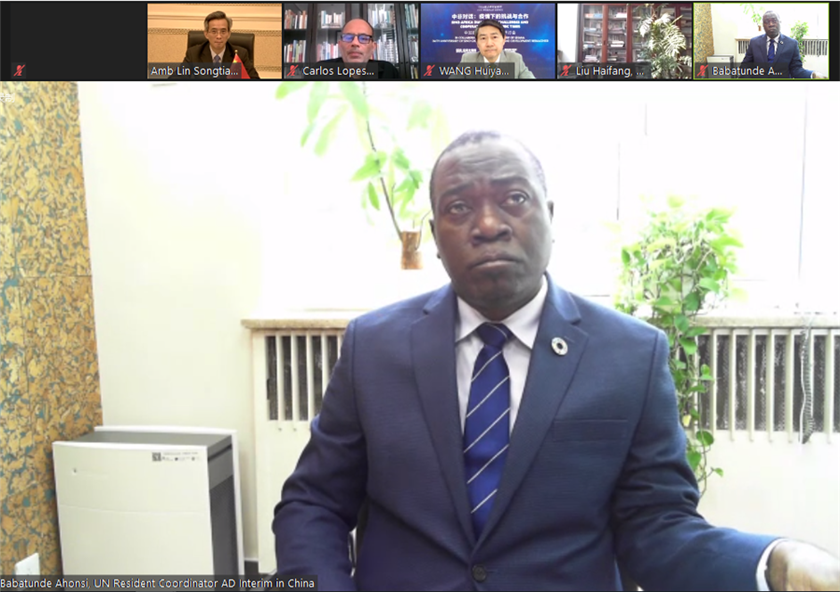
Babatunde A. Ahonsi, representative of the United Nations Population Fund in China, said that the pandemic can be an opportunity to promote coordinated global action, which can boost the development of investment and personnel exchanges between China and Africa. He said that the crisis shows that the world needs to create a fairer order, ensure shared prosperity, and promote economic growth in Africa. Ahonsi added that a more inclusive order will not only increase GDP, but also create millions of new jobs for young people. He emphasized that three balances must be achieved under the crisis of the pandemic, namely, the balance between public health response and economic recovery, the balance between short-term and long-term economic development in Africa, and the balance between the new normal and the next normal.
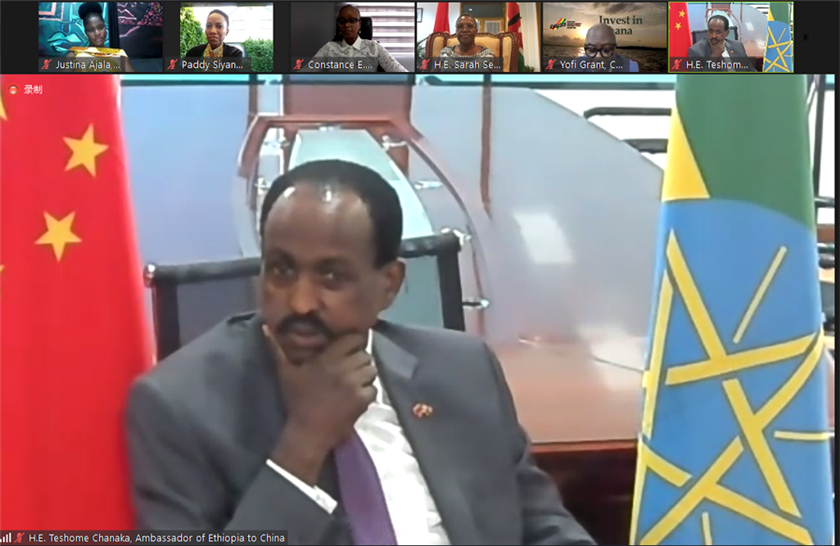
Ethiopian Ambassador to China Teshome Toga Chanaka said that the relationship between China and Africa is a relationship between a major country and a continent. In this relationship, he noted that China is an important strategic partner of Africa. He said that when the pandemic arrived, China and Africa both helped each other and provided supplies to each other when they were in difficulty. He stressed that commercial cooperation and mutual investment between China and Africa have bright prospects, and that China should further encourage investment in Africa. He said that improving Africa’s overall strength is as important as technology transfer to Africa. He suggested that China can provide training for African students in STEM (Science, Technology, Engineering, Mathematics) disciplines and vocational education, which would be very beneficial to China and Africa.
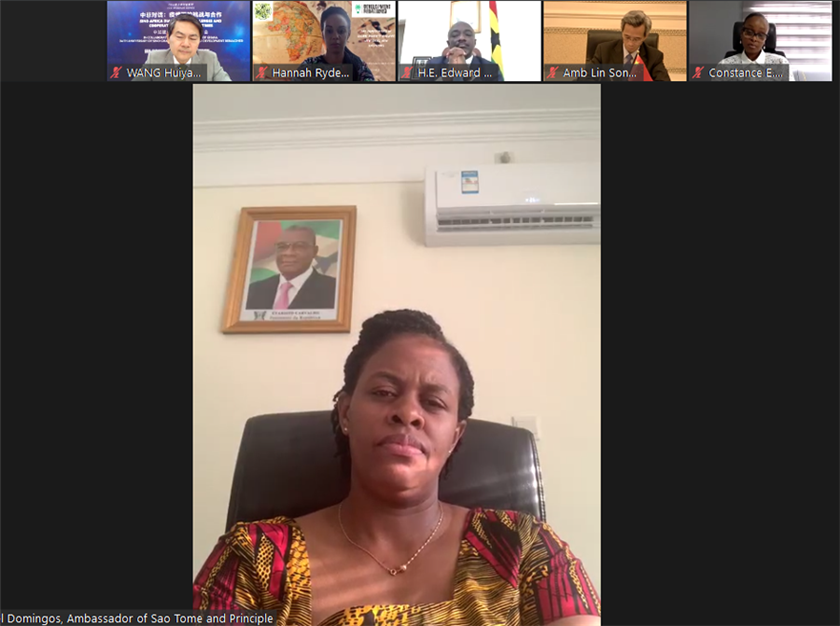
Sao Tome and Principe’s Ambassador to China Isabel Domingos pointed out that China and Africa are regions with a lot of resources, so they should work together to overcome the pandemic. She said that for small and medium-sized enterprises in Africa, the pandemic has hit them hard, and recovery is also very difficult. Domingos said that we should consider how to provide them with another way out. She said that China and Africa can share their experiences and added that with the help of China, Africa’s huge market will be able to find the way forward in the new era.
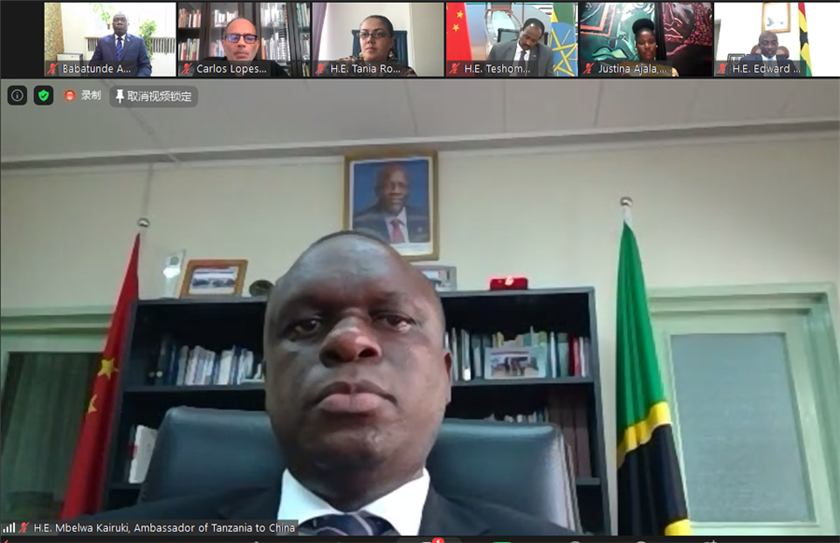
Tanzanian Ambassador to China Mbelwa Kairuki said that the pandemic will redefine the world order, and in the face of adversity, China and African countries must safeguard their common interests. He noted that, given how the pandemic has disrupted industrial supply chains, reduced international trade and investment, and caused turmoil in commodity markets, it is particularly important for China to deepen trade cooperation with Africa. He stressed that currently, the volume of Africa-China trade is relatively small and mostly concentrated in six of the 54 countries in Africa. He pointed out that China and Africa should establish a system to promote trade, which includes information exchange, quality certification, agricultural investment, and technical assistance. He said that as long as the two parties are more informed about each other and have a better grasp of the market, deeper cooperation is just around the corner.
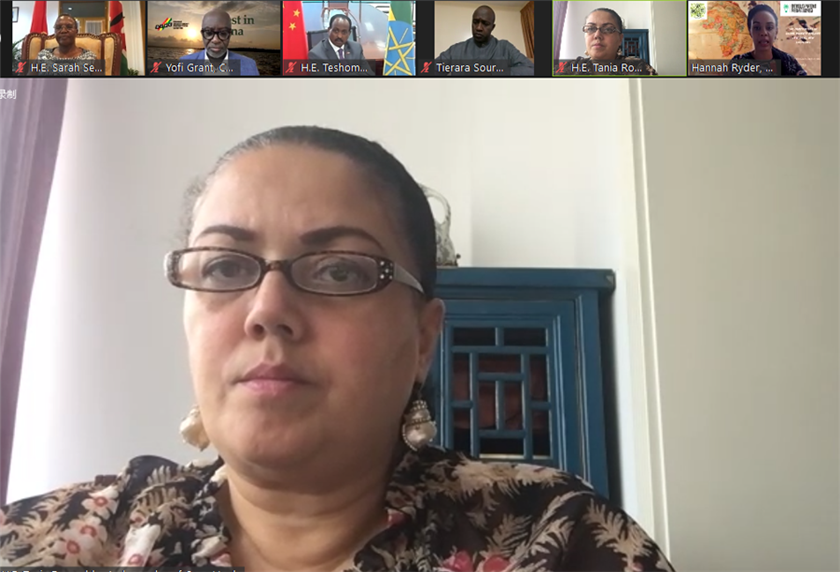
Tania Romualdo, ambassador of the Republic of Cape Verde to China, said that the pandemic has changed the world. She said although this is an unfortunate event, it also presents opportunities. In particular, she added that the United Nations, African Union representatives to China, African ambassadors to China, universities and other Chinese and African partners, as well as student associations, are carrying out very interesting activities. Romualdo noted that when discussing the future of Africa, students need to join in, especially African youth studying in China. Prior to this, she said that they had organized three “Africa Weeks” in Beijing and several other cities in China. She greatly appreciates organizations such as the “African Network,” which have promoted the active participation of overseas students and African communities in China in activities between China and Africa.
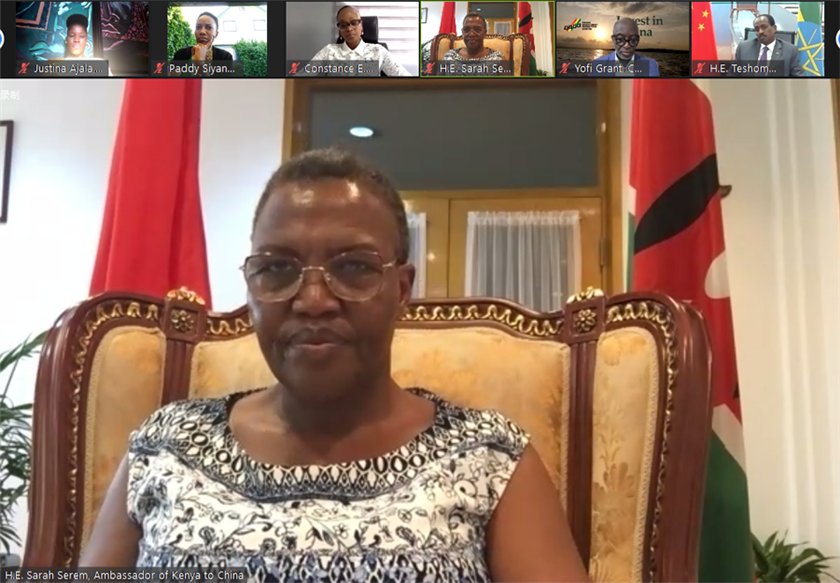
Kenyan Ambassador to China Sarah Serem said that the pandemic has actually brought new opportunities for globalization and Africa-China exchange. She said that this crisis for all of humankind has made people realize the importance of unity and cooperation, and also proved the possibility of cooperation through multiple channels. She also said that during the pandemic, China tried its best to protect the rights and health of Africans in China, and that African countries also protected the rights and interests of foreigners. She emphasized the importance of cooperation and said that to reap benefits in the Chinese market, African countries must unite and communicate. Serem also said that Chinese universities recruiting students from Africa is an important part of cooperation, and targeted scholarship programs and increasing internship opportunities for African students in China will make this exchange more effective.

Permanent Representative of the African Union to China, Rahamtalla M. Osman, said in his closing remarks that African countries have put forward their own proposals to reduce the negative social and economic impact of the pandemic. He said that due to the impact of the pandemic, the AfCFTA, which was originally scheduled to be formally launched on July 1, 2020, was postponed. However, he added that if we use this opportunity to improve the agreement’s operating mechanism and open up markets, both China and Africa can benefit. He proposed that African countries should pay attention to their own resources, develop their own advantages, and use the AfCFTA agreement to leverage the market and do business with China. He expressed gratitude to President Xi Jinping for saying that China will support the construction of a free trade area on the African continent. He said that Africa’s industrialization cannot be separated from the large-scale investment and debt issues. Osman suggested that China should work with Africa to explore ways to solve the debt problem, increase the income of related countries, and reduce the negative impact of loans and debts.
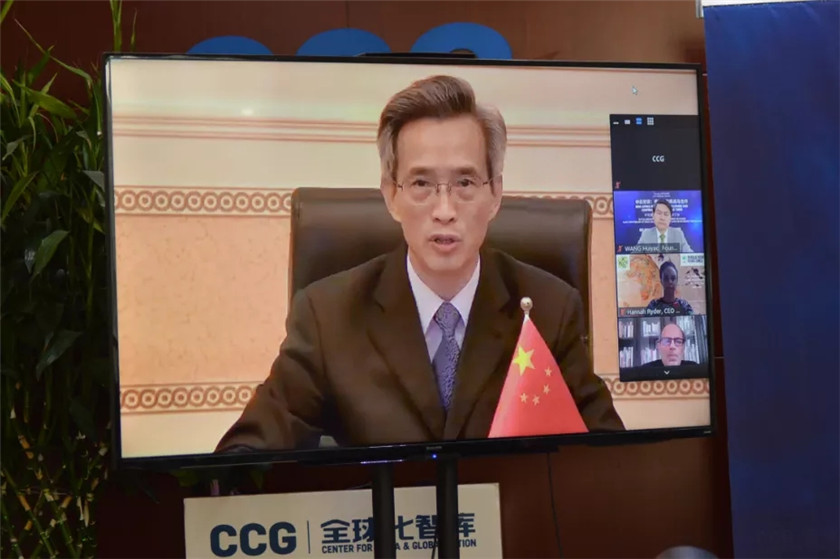
Lin Songtian made a concluding speech, noting the constructive opinions voiced during the webinar. He said that China’s successful experience in reducing poverty and fighting the pandemic shows its strong desire for international cooperation and peaceful development. Liu called upon people to work together, innovate thinking, and strengthen cooperation in order to turn the pandemic crisis into grand new opportunities for the world.
